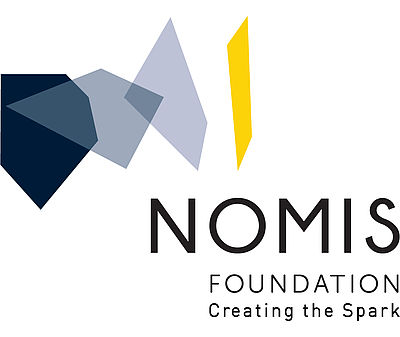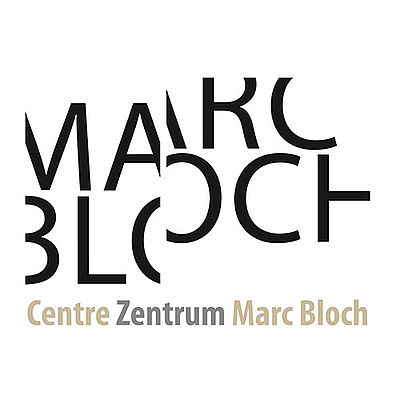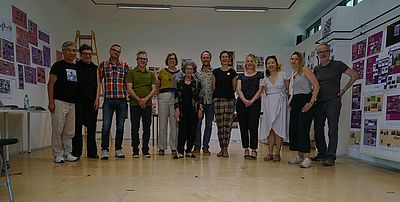(NOMIS) Trophy Photographs. Performative Transgressions of Ordinary Soldiers in World War II
État, normes et conflits politiquesPrincipal investigators : Elissa Mailänder and Tom Streuber
Funding agency: Nomis Foundation
Project partners: Centre d'histoire de Sciences Po, CMB, Tom, Dick & Harry GmbH
Duration: 2024-2026
Elissa Mailänder (Sciences Po Paris Centre d’Histoire / Centre Marc Bloch Berlin)
Tom Streuber (Tom, Dick & Harry GmbH)
Celebrating victory – often depicted in a graphic and crude manner – is one of the most recurrent motifs in amateur soldier photographs of World War II, the largest global conflict to date and the first that was widely covered. Taking trophies from the battlefield is a universal and timeless human practice; as object and medium, however, photographs add an entirely new dimension to this phenomenon. Soldiers created and circulated photographic displays of triumph, transforming the experience of armed conflicts into a shared, intimate, and eminently visual event.
Our collaborative interdisciplinary project, composed of fifteen scholars, collectors, and artists with diverse backgrounds, interests, and specializations, considers “trophy photographs” taken by Axis and Allied soldiers in a transnational perspective as a distinct photographic genre and social practice that shaped not only the servicemen, but also their larger societies. Trophy photographs, we argue, hold historical, sociological, and political meaning and reveal new aspects of essential social and cultural practices of warfare. Their inherently performative quality and evocative power transform trophy photographs into a weapon in their own right, with far-reaching consequences until today.
Our collective effort to understand the history and meaning of trophy photographs in World War II forces us to reconsider the complex relationships between artifacts and actors; photographers and spectators; past, present, and future societies. As products of the interaction between their content (diegesis, or the space of the image) and their context (extradiegetic circumstances, or external and historical factors that can and do change), photographs not intended as trophies can become them. Meanwhile those photographs created to commemorate triumph might unintentionally become documents of atrocities. It is therefore necessary to explore the legacies of trophy photographs, as they construct alternative realities that soldiers and their communities later perceive as truth. Capable of keeping the past alive, trophy photographs often trigger contradictory memories and narratives, providing a sense of pride while also transmitting trauma across generations.
By examining World War II-era photographs and historical visual practices we are developing hermeneutical tools to dissect trophy photographs of past, current, and future conflicts. The primary goal of this collaborative research is a photo-textbook for a broad audience that explores and reflects the interplay between scholarly inquiry and the ethics of showing. Our transdisciplinary approach aims to better comprehend present-day amateur war photographs circulating on social media and to generally deal with warfare in a more critical and conscious manner.
Team members in alphabetical order:
Petra Bopp (PhD, freelance art historian and curator), Martin Dammann (artist and collector), Margaret Hillenbrand (Associate Professor of Modern Chinese Literature and Culture, University of Oxford), Marianne Ingleby (artist and collector), Iain Johnston (PhD, historian of the British Empire and war in the twentieth century, University of Groningen), Daniel H. Magilow (Professor of German visual culture, University of Tennessee, Knoxville), Elissa Mailänder (Associate Professor of Violence and Gender History, Sciences Po Paris), Regina Mühlhäuser (PhD, historian of sexual violence and Senior Researcher, Hamburg Foundation for the Advancement of Research and Culture), Malu Mühmer (research intern), Ulrich Prehn (PhD, historian and curator, Center for Research on Antisemitism at the Technical University of Berlin), Mary Louise Roberts (WARF Distinguished Lucie Aubrac and Plaenert-Bascom Professor emeritus of History, University of Wisconsin–Madison), Sven Saaler (Professor of Modern Japanese History, Sophia University of Tokyo), Tom Streuber (author, filmmaker, and producer), Yuki Tanaka (Emeritus Research Professor of History, Hiroshima Peace Institute), Jan Wenzel (writer, publisher, and the co-founder of Spector Books), Jialin Christina Wu (Associate Professor in Contemporary Asian History, Université Paris I - Panthéon-Sorbonne)
Elissa Mailänder is an Associate Professor of contemporary history at Sciences Po and works at the Center for History (CHSP) in Paris, France and an associated research fellow at the Centre Marc Bloch Berlin, Germany. She is co-leading the project TROPHY PHOTOGRAPHS. Performative Transgressions of Ordinary Soldiers in World War II.
Born in Italy, Mailänder studied comparative literature and holds a master’s degree in French literature from the University of Vienna and one in German studies from the University Paris-Sorbonne. Mailänder later changed her focus to history and earned her joint PhD (co-tutelle de thèse) in Contemporary History and Historical Anthropology from the École des Hautes Hautes Études en Sciences Sociales (EHESS) Paris and the University of Erfurt in 2007. From 2008 to 2009 she was a Research Fellow for the Center for Interdisciplinary Memory at the Institute for Advanced Study in the Humanities (KWI) in Essen, Germany. Mailänder then worked as a lecturer for the German Academic Exchange Service (DAAD) at the EHESS and the Centre interdisciplinaire d’études et de recherches sur l’Allemagne (CIERA), Paris, France. In 2012, she wasappointedAssociate Professor of Contemporary History at at Sciences Po Paris.A historian of gender and sexuality and a specialist of Nazi Germany and World War II she focuses on the history of violence that she analyses from a material, social, political, and cultural dimension.
Research focus:
Mailänder has published extensively on perpetrator history and the practices, structures, and mechanisms of violence in Nazi Germany. With Female SS Guards and Workaday Violence: The Majdanek Concentration Camp, 1942–1944 (Lansing: Michigan State University Press, 2015; originally published in German in 2009), Mailänder focused on female perpetrators and the complex socio-structural dynamics that generated individual abuse, mass violence, and genocide. Her latest book, Amour, mariage, sexualité. Une histoire intime du nazisme, 1930-1950 (Paris: Seuil, 2021), examines friendship, intimacy, and heterosexual relationships in Nazi Germany, highlighting the importance of mass participation and practices of everyday conformity to dictatorship. Mailänder also is a founding member of the international and interdisciplinary research group Sexual Violence in Armed Conflict.
Tom Streuber is a writer and producer of award-winning documentaries and feature films such as Phase II (Best Newcomer 2002, Cinéma du Réel, Paris), Mercy (Berlinale Competition 2012), and Theatre Without Audience (Volksbühne Berlin 2015). He is co-leading the project TROPHY PHOTOGRAPHS. Performative Transgressions of Ordinary Soldiers in World War II.
Born in the GDR, Streuber studied literature, history, theatre-, film- and tv sciences at University of Cologne. He graduated with a degree in creative and international producing at Filmakademie Baden-Württemberg in Ludwigsburg and joined a filmmaking masterclass at UCLA as well as pursuing further training with EAVE (European Audiovisual Entrepreneurs) and TAP (Transatlantic Partners). He works as founding CEO of several ventures and as author & strategist for media, advertising, and communication campaigns.
The focus of his work is story development while exploring the role of the creator and observer. His experience and applied critical approach to narratives and performances make him an expert in identifying, reflecting, and documenting research dynamics while creating all forms of media.





